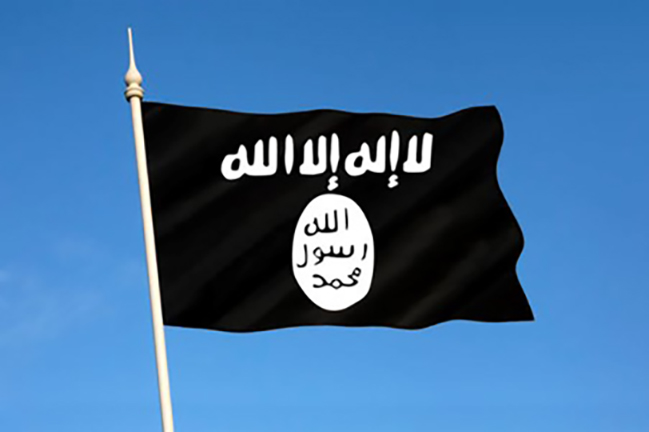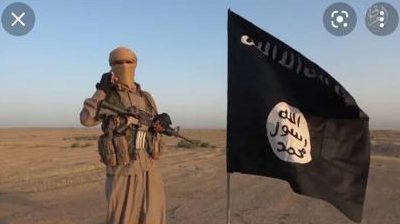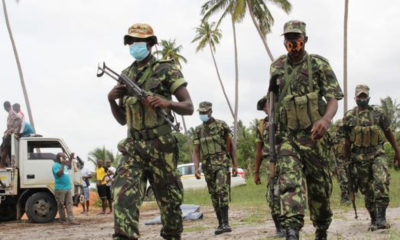
News

Exposure of Durban ISIS cell raises security alert
The United States (US) treasury department’s Office of Foreign Assets Control is keeping a close watch on certain individuals in “ISIS’s [Islamic State’s] network” in South Africa.
“They have played pivotal roles in enabling terrorism and other criminal activities in the region,” says the department’s under-secretary for terrorism and financial intelligence, Brian E. Nelson. The men were said to be “designated”, which means “their assets are blocked and US persons are generally prohibited from dealing with them”.
Speaking on 7 November, Nelson said these men “have provided technical, financial, or material support to the terrorist group”. Treasury also designated eight companies owned, controlled, or directed by the individuals in the cell.
Says Community Security Organisation (CSO) Operations Director Jevon Greenblatt, “This draws attention to the very real issue of terrorism in South Africa and the pivotal role South Africa plays in the recruitment, facilitation, and funding of terror groups at home and across the continent.
“The South African political and socio-economic environment creates space for individuals and groups with radical ideologies to exist and thrive. Many of these ideologies – which aren’t limited to radical Islam – see the Jewish community as a legitimate target.”
Professor Hussein Solomon of the department of political studies and governance at the University of the Free State, says, ”The terror threat in South Africa is growing, and this demonstrates that the international community is taking it seriously.
“Mounting a terror operation, securing fraudulent documentation, safe houses, or living expenses, all need money,” Hussein says. “Cutting off their financing is a critical aspect of effective counter-terrorism.” In addition, “the antisemitic ideology often driving these groups often makes the Jewish community a target”.
Greenblatt takes this up, saying that it means that “our community should always be vigilant and apply the necessary measures to ensure we remain safe”. He says this requires further investment in “effective physical security measures, adherence to security protocols, and ensuring there are teams of trained and proactive community volunteers and security personnel on duty at all key times”.
As long as we do this and instil a non-alarmist but proactive culture of security, Greenblatt says, “We’re much less likely to be targeted. It will also help in mitigating the effect of an attack.”
Says Nelson, “ISIS continues to expand its terrorist network across the continent, as evidenced by the July 2022 United Nations Security Council report that highlighted the emerging importance of the country for funds transfers from ISIS leadership to ISIS affiliates across Africa.
“Treasury remains committed to disrupting terrorist financing on the African continent. The US will continue to partner South Africa to deny ISIS the ability to exploit the country’s economy.”
This is the second time that the department has designated Farhad Hoomer, the first being in March 2022. At that time, it also designated Siraaj Miller, Abdella Hussein Abadigga, and Peter Charles Mbaga.
Nelson says Hoomer “continues to pursue ISIS’s objectives in southern Africa, and expresses the will and intent to attack the interests of the US and its allies”. It designated Hoomer along with brothers Nufael Akbar and Yunus Mohamad Akbar, saying they are “senior members” of Hoomer’s cell.
“Today’s action also targets two other Hoomer associates, Mohamad Akbar and Umar Akbar, who were arrested in 2018 by South African authorities along with Hoomer for their involvement in a plan to deploy incendiary devices near a mosque and commercial retail buildings,” says Nelson.
“We need to look at the history,” says Willem Els, senior training co-ordinator at the Institute for Security Studies, noting a string of incidents in the Durban area from murder in a mosque to incendiary devices placed in Woolworths outlets, both in 2018. “People have been arrested, but due to less-than-adequate investigation and prosecution, the case was thrown out of court. This could be why this happened now – to put some pressure on the South African government to take this more seriously.”
Says Greenblatt, “the motive [of these past incidents] appeared to be extortion. Two individuals included in these latest sanctions were also implicated in those attacks. In addition, media reports point to members of the Durban cell being linked to a kidnapping syndicate with ISIS affiliations operating out of Kliprivier in Gauteng. The Kliprivier cell was in turn linked to shootings across Johannesburg on New Year’s Eve in 2020. If the reports are correct, it would appear that there’s very strong co-ordination between the various ISIS cells operating across the country.”
“The threat of terrorism in South Africa and the region is undeniable,” says local terrorism expert Jasmine Opperman. “Our vulnerability relates to terror financing, the exploitation of organised crime activities by terror groups, and [the presence of terrorists] in Cabo Delgado in Mozambique.”
She says the designations show “we have foreign intelligence services focusing on South Africa. This brings me to ask about South Africa’s ability to provide active intelligence and to prosecute and conclude terror cases effectively. We’re left with many questions about specific individuals, and that raises more insecurity.”
Regarding the safety of the Jewish community, “If we talk about international terror groups, the Jewish community has always been a target, so Jewish communities are always vulnerable to organised or lone-wolf attacks,” Opperman says.
“The sanctioning indicates that South Africa has an ISIS facilitation network,” says Ryan Cummings, the director of security risk-management consultancy Signal Risk. “It’s using its expertise and criminal undertakings to fund ISIS operations domestically or abroad.
“This also comes at a time when South Africa could potentially be greylisted by the Financial Action Task Force, which has stated that there are various kinds of non-compliance by South Africa in terms of countering extremist terrorism financing and money laundering. Hopefully this will prompt the government to take more robust measures in terms of countering extremist financing.”
Cummings agrees that the “Jewish community is considered a ‘high-value target’ for extremist organisations across the world”, and “ISIS sympathisers in South Africa such as the Thulsie twins wanted to target Jewish interests. So, the presence of any extremist organisation definitely poses a threat to the Jewish community.”
Asked if this cell could be linked to the warning by the US government about a possible terrorist threat in Sandton in October, Solomon says, “My sense is that the different cells don’t have integrated command and control.”
Cummings agrees that “the cell in question has been designated to the Durban area, and suggests that the group is more of a financing network as opposed to engaging in militant activities. There isn’t a lot of evidence to suggest that this could be associated with the perceived Sandton attack.”
Greenblatt notes that “some reports have suggested the possibility that the cell may be linked to the Sandton threat, but we don’t have information confirming this. That said, it’s clear that ISIS is a growing threat, and an attack like that posed in the warning would fit its modus operandi. It’s important to be vigilant and prepared. Next time there may not be a warning.”
For any emergency, suspicious activity, or potential threats specifically related to the Jewish community or Jewish installations, contact the CSO on 086 18 000 18.
Photo credit: Islamic State flag. Credit 123rf








